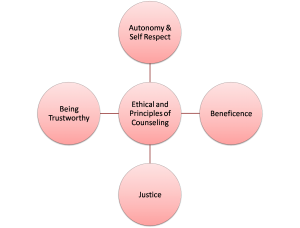
Universities across the UK have a responsibility to develop appropriate interventions to respond to the welfare and mental health needs of their students. With the ever increasing reliance on technology and increasing amount of communication tools at students disposal, the need for universities to adapt and embrace new technologies is never been more pressing.
The online delivery of counselling has been noted as offering a positive effect on disinhibition and embraces the therapeutic benefit of writing. Online delivery benefits from increased access, flexibility, and on-time and on-demand services. Current research into online counselling has produced an significant amount of empirical studies that, for the most part, produced positive results. The broad area of computer-aided psychotherapy has produced studies that attest to the positive potential of online and remote delivery of psychological support (Richards, 2009).
TrustPal aims to create an environment which at it’s core promotes the advantages of what is known as ‘writing therapy’. There is evidence to suggest online counselling has the following advantages:
- Immediacy of expression of feelings. (Baughan, 2000)
- Greater control, writing gives the student a high degree of freedom to define her or his own experiences and explore whatever feels most relevant and proceed at a rate they feel comfortable with. (Wright, 2002)
- Privacy – shame is overcome within the anonymous setting of TrustPal.
- Client active participation in their own healing. (White & Epston, 1990).
There are some limitations in regards to online counselling & support, these were outlined in ‘Online Counselling: A descriptive analysis of therapy services on the internet’ by Chester & Glass (2007). They argued the inability to read non-verbal cues and the crucial role that body language plays in face-to-face discussion limits the quality of help that can be given online. Online support is also severely lacking when it comes to severe pathology and risky behaviour such as suicidal conditions.
Application to TrustPal
It’s important to note that TrustPal aims to offer a first-step in the healing time-line for students in need. Most of the papers referred to are from Mental Healthcare and Counselling journals, the research from these offer a grounded basis for the successful application and adoption of a system such as TrustPal. TrustPal aims to utilise the current student body to help students in need. This means that though the staff of TrustPal will be students, they will need adequate training before being able to offer support and direction within the TrustPal environment. This is especially important when understanding and dealing with scenarios such as suicidal conditions.
As outlined above, TrustPal is born out of the evidence shown in many academic papers that anonymous online support offers advantages and will become an important channel for students to seek help 24/7.
Baughan, R. (2000). E-listening: the Samaritan’s experience. Counselling, 11(5), 292± 293.
Chester, A., & Glass, C. a. (2006). Online counselling: a descriptive analysis of therapy services on the Internet. British Journal of Guidance & Counselling, 34(2), 145–160. doi:10.1080/03069880600583170
Richards, D. (2009). Features and benefits of online counselling: Trinity College online mental health community. British Journal of Guidance & Counselling, 37(3), 231–242. doi:10.1080/03069880902956975
White, M. & Epston, D. (1990). Narrative Means to Therapeutic Ends. New York: Norton.
Wright, J. (2002). Online counselling: Learning from writing therapy. British Journal of Guidance & Counselling, 30(3), 285–298. doi:10.1080/030698802100002326



